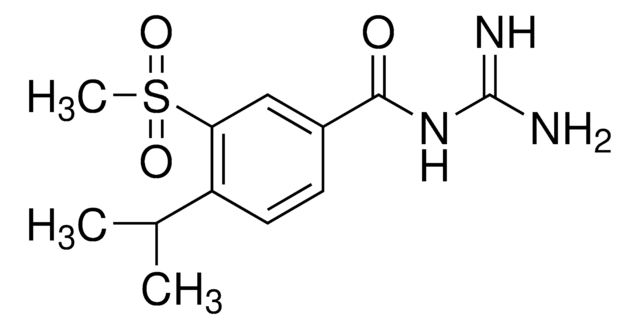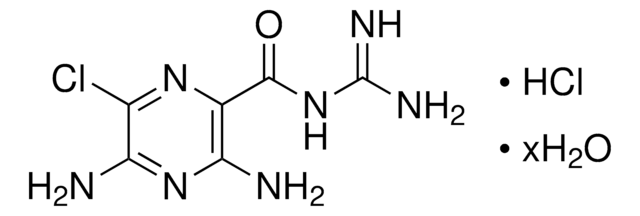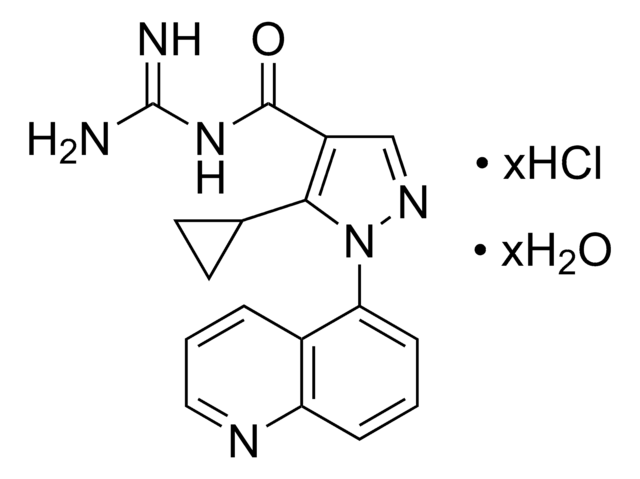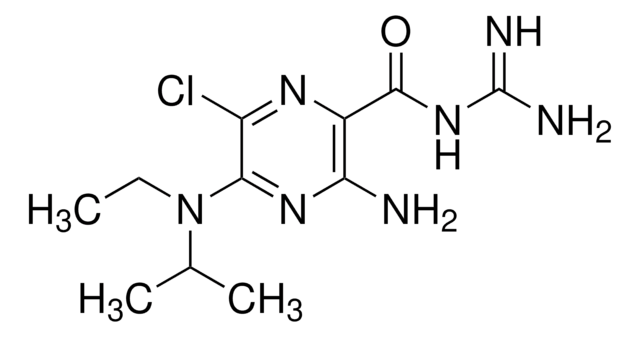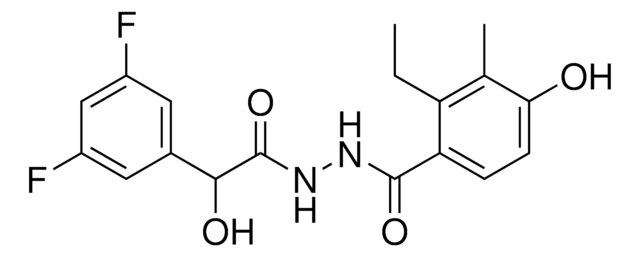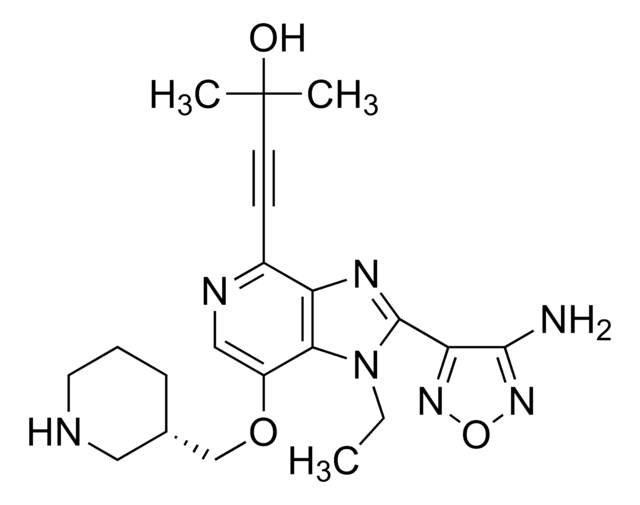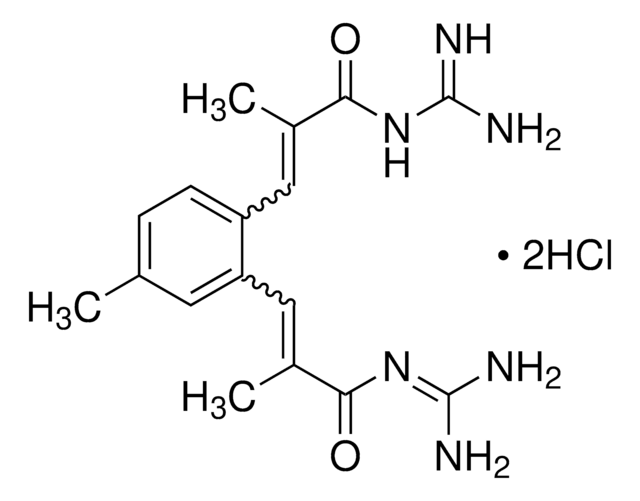SML1828
EMD-87580
≥98% (HPLC)
Synonym(s):
EMD87580, N-[2-methyl-4,5-bis(methylsulfonyl)-benzoyl]-guanidine
Sign Into View Organizational & Contract Pricing
All Photos(1)
About This Item
Empirical Formula (Hill Notation):
C11H15N3O5S2
CAS Number:
Molecular Weight:
333.38
UNSPSC Code:
12352200
NACRES:
NA.77
Recommended Products
Quality Level
Assay
≥98% (HPLC)
form
powder
color
white to beige
solubility
DMSO: 20 mg/mL, clear
storage temp.
−20°C
SMILES string
NC(NC(C1=CC(S(=O)(C)=O)=C(S(=O)(C)=O)C=C1C)=O)=N
Application
EMD-87580 has been used as a selective and potent sodium-hydrogen antiporter 1 (NHE-1) inhibitor in cardiac ventricular myocytes to test its effect on the hypertrophic response.
Biochem/physiol Actions
EMD-87580 is a selective inhibitor of the Na+/H+ exchanger subtype 1 (NHE-1), also known as the Na+/H+ antiporter. EMD-87580 has shown cardioprotective effects, and has been investigated as a possible treatment for Duchenne′s muscular dystrophy.
Storage Class Code
11 - Combustible Solids
WGK
WGK 3
Flash Point(F)
Not applicable
Flash Point(C)
Not applicable
Choose from one of the most recent versions:
Certificates of Analysis (COA)
Lot/Batch Number
Don't see the Right Version?
If you require a particular version, you can look up a specific certificate by the Lot or Batch number.
Already Own This Product?
Find documentation for the products that you have recently purchased in the Document Library.
Ghassan Bkaily et al.
Canadian journal of physiology and pharmacology, 93(11), 923-934 (2015-08-21)
Using the UM-X7.1 hereditary cardiomyopathic and muscular dystrophy hamsters (HCMH), we tested the effects of lifelong preventive or curative treatments during the heart failure phase with the NHE-1 inhibitor EMD 87580 (EMD) or with the angiotensin-converting enzyme inhibitor cilazapril on
Juliana Fantinelli et al.
European journal of pharmacology, 737, 125-132 (2014-05-27)
Previous results show that prolonged treatment with EMD-87580 (EMD) NHE-1 blocker attenuates and reverses postinfarction remodelling. Our aim was to evaluate the effects of the treatment of EMD compared to ischemic postconditioning (IPO) in a model of regional ischemia. Isolated
Sabzali Javadov et al.
The Journal of pharmacology and experimental therapeutics, 317(3), 1036-1043 (2006-03-04)
Although inhibition of Na+/H+ exchanger isoform 1 (NHE-1) reduces cardiomyocyte hypertrophy, the mechanisms underlying this effect are not known. Recent evidence suggests that this may be associated with improved mitochondrial function. To understand the mechanistic bases for mitochondrial involvement in
Mohamed Mlih et al.
Molecular and cellular biochemistry, 404(1-2), 211-220 (2015-03-12)
Osteopontin (OPN), a multifunctional glycophosphoprotein, has been reported to contribute to the development and progression of cardiac remodeling and hypertrophy. Cardiac-specific OPN knockout mice were protected against hypertrophy and fibrosis mediated by Ang II. Recently, transgenic mice expressing the active
Our team of scientists has experience in all areas of research including Life Science, Material Science, Chemical Synthesis, Chromatography, Analytical and many others.
Contact Technical Service